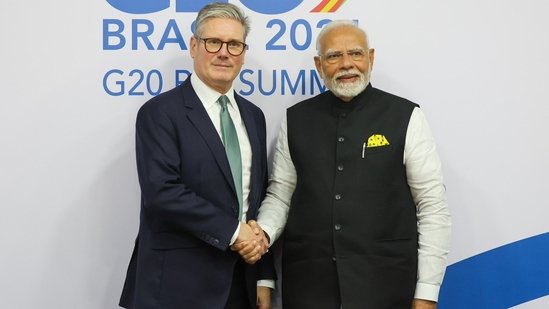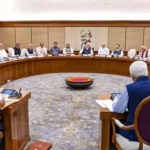
UK-India Free Trade Agreement: A Blueprint for India’s Future FTAs with the EU and US
On May 6, 2025, India and the United Kingdom finalized a landmark Free Trade Agreement (FTA), marking a significant milestone in their bilateral relations. This agreement not only aims to enhance trade between the two nations but also sets a precedent that could influence India’s ongoing FTA negotiations with major global partners like the European Union (EU) and the United States (US).
Key Features of the UK-India FTA
Tariff Reductions:
- India has agreed to reduce tariffs on 90% of UK exports, with 64% becoming tariff-free immediately and 85% within a decade.
- Notable reductions include tariffs on UK whisky and gin, decreasing from 150% to 75%, and eventually to 40% over ten years.
- Automotive tariffs will drop from over 100% to 10%, subject to quotas and starting with internal combustion engine vehicles.
Market Access and Services:
- The agreement provides UK businesses with access to Indian government procurement markets and ensures equal treatment for UK financial services companies.
- It also establishes a framework for mutual recognition of professional qualifications, facilitating mobility for professionals in sectors like engineering, architecture, and consultancy.
Social Security and Mobility:
- A Double Contributions Convention Agreement accompanies the FTA, allowing Indian employees temporarily working in the UK to be exempt from National Insurance Contributions for three years, with reciprocal provisions for UK employees in India.
Implications for India’s FTAs with the EU and US
Setting a Precedent:
The comprehensive nature of the UK-India FTA, covering goods, services, and social security, provides a model framework that India can present in its negotiations with the EU and US. The agreement demonstrates India’s willingness to engage in deep economic partnerships while balancing domestic interests.
Negotiation Dynamics:
With the EU and US observing the concessions and commitments made in the UK-India FTA, India may leverage this agreement to negotiate similar or more favorable terms, particularly in sectors like pharmaceuticals, information technology, and agriculture.
Strategic Positioning:
Finalizing the FTA with the UK enhances India’s credibility as a reliable trade partner, potentially accelerating negotiations with the EU and US. It also signals India’s strategic intent to integrate more deeply into global trade networks.
Challenges and Considerations
Balancing Domestic Concerns:
While the UK-India FTA opens new avenues for trade, it also raises concerns among domestic industries about increased competition. India will need to ensure that future FTAs with the EU and US address such concerns through safeguards and support measures.
Regulatory Alignments:
Aligning standards and regulations, particularly in sectors like agriculture and pharmaceuticals, will be crucial in negotiations with the EU and US. India’s experience with the UK FTA can inform its approach to these complex issues.
















Leave a comment